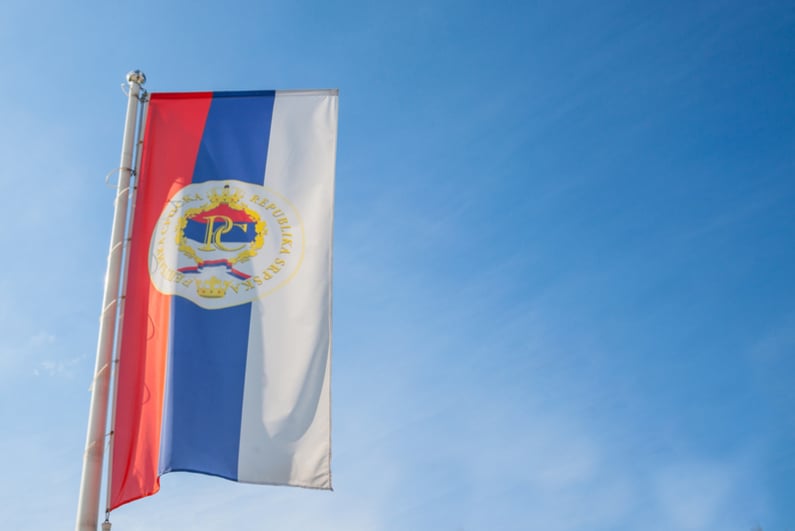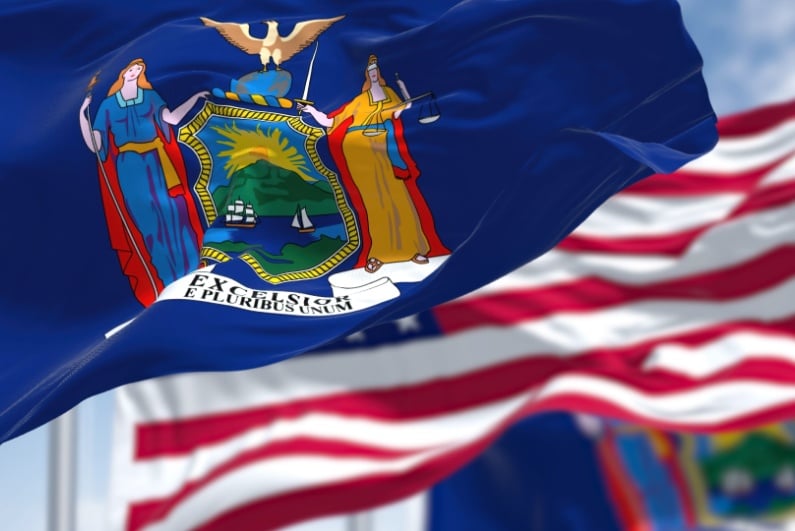30-second summary
- Law on gambling in Serb Republic in Bosnia can be changed without debate
- Regional government would control regulation and increase tax rate
- Measure threatens 15 betting companies
- Similar attempt in Bosnia-Herzegovina province failed to pass
The government of the Republika Srpska (Serb Republic, RS) in Bosnia is considering an “urgent measure” that it says will improve the gambling infrastructure in the province. The bill would increase the tax take and put regulation under control of the ministry of finance.
But gambling operators warn that they will be forced to close if the laws are changed, as the tax hike will make it impossible for them to turn a profit.
Gambling in RS
The country of Bosnia, in the Balkans, consists of two autonomous provinces. The RS and the Federation of Bosnia and Herzegovina (BiH) each have their own governments. The central government has limited powers. Gambling in both regions is regulated by the provincial governments.
In RS, the current regulator is the Administration for Games of Chance. It falls within the remit of the RS ministry of finance. The AGC has the power to license gambling operators and casinos, enforce compliance with a complex web of different laws on gambling, and handle tax revenues. It also runs the lottery and even determines the rules of games.
Betting is a popular pastime in Bosnia. Online gambling has been legal in RS since 2011, but not in BiH. The AGC issued the first online gambling license to a sports betting company, Williams. It runs a platform call Wwin.
Two other online gambling platforms also have licenses and there are no restrictions on people playing on offshore platforms. The RS has a total of 15 licensed operators, and more than 750 betting shops.
Proposed “urgent” measure
The RS government is considering implementing a new law on gambling without public debate, according to a report by Balkan Insight. The proposed law was put before the RS assembly on February 25 under “urgent procedure,” which means it can be passed by special measure.
The proposed law will hand regulation of the gambling sector directly to the Ministry of Finance, replacing the AGC. The ministry would have full oversight of the industry and gain more powers to control the influx of online gambling platforms in RS.
The bill includes a proposal to increase the tax on gambling revenues. There is no information on the likely new tax rate, but the current tax rate of 15% earns RS around €93m (£80m, $104m) a year. Winners must also pay a 15% tax on their winnings, currently worth around €14m (£12m, $15.7m) a year to the ministry. The new proposal means that even small winnings of under €50 (£43, $56) would be taxed.
A statement from the ministry said: “The taxation of games of fortune has so far been done largely as a lump sum [but] … the introduction of ‘on-line’ supervision creates technical and legal prerequisites for taxation in relation to income payments of all gambling organizers.”
The government also intends to upgrade its lottery, the Lottery of Republika Srpska Banja Luka, to standards similar to those of neighboring countries.
Betting under threat
Gambling companies in RS, Bosnia’s ethnic Serb-dominated entity, say the new law could force them to close. They are complaining that the RS government has not consulted them nor their industry organization, the Association of Organizers of Legal Chance Games.
One of the leading gambling operators in RS, Premier Sport Betting, says a tax hike would destroy profit margins and force them to cease operations.
Spokesperson Toni Boras of Premier said: “If the new law on games of chance is adopted in this form, like all other organizers of chance games, we will be forced to close the company and dismiss all the workers. The only thing left to us once the law is adopted is to close and dismiss all workers. Those who adopt the law can then explain to workers why they no longer have jobs.”
The BiH government attempted to pass a similar law in 2016. That bill also aimed to tax all winnings, even under €50, at a rate of 15%. The bill lacked popular support and was eventually shelved, largely because it faced intractable opposition from the conservative Croatian Democratic Union, which is the main Croat party in Bosnia.




